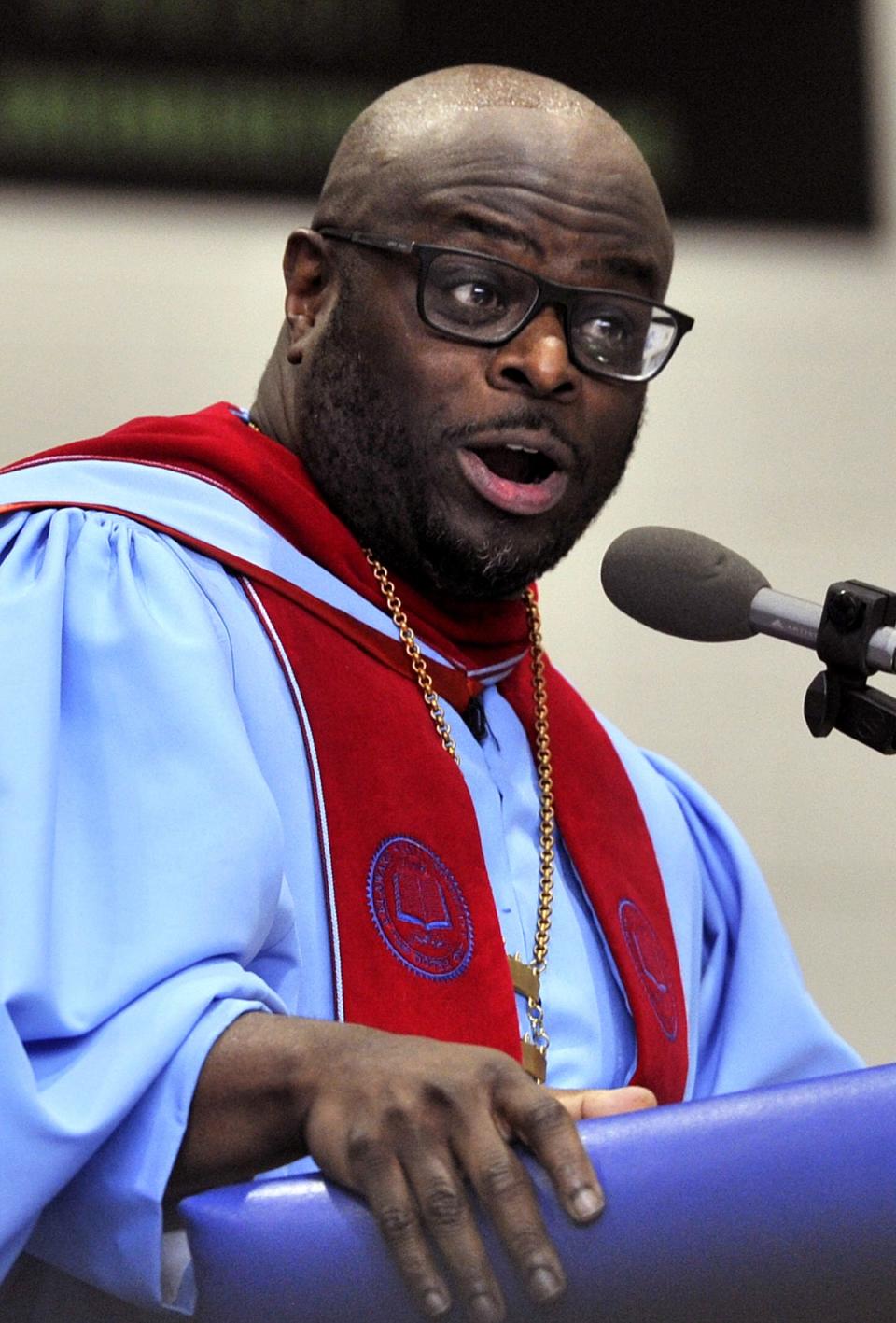Delaware braces for impact as Supreme Court blocks use of race in university admissions
- Oops!Something went wrong.Please try again later.
- Oops!Something went wrong.Please try again later.
- Oops!Something went wrong.Please try again later.
Thursday the Supreme Court moved to invalidate race-conscious admissions policies used by Harvard College and the University of North Carolina to diversify their campuses. The historic decision will roll back affirmative action, sending reverberations throughout both higher education and the workplace.
A 6-3 decision written by Chief Justice John Roberts held that such policies violated the equal protection clause of the 14th Amendment. It echoed long-signaled skepticism about affirmative action from the court's conservative majority. Votes came at 6-2 in the Harvard case as Justice Ketanji Brown Jackson recused herself.
The admissions cases were part of a broader conservative push to reimagine the equal protection clause of the 14th Amendment, USA TODAY reported Thursday — the amendment intended to protect the rights of former slaves under discriminatory state laws, particularly in the South.
Wider debate concerns whether the post-Civil War clause requires colorblind policies or instead, to curb discrimination, race can be considered. This particular legal battle in academia has unfurled over decades.
MORE ON DECISION: Supreme Court blocks use of affirmative action at Harvard, UNC in blow to diversity efforts
"We have time and again forcefully rejected the notion that government actors may intentionally allocate preference to those 'who may have little in common with one another but the color of their skin,'" Roberts wrote in the majority opinion.
The justice went on to write that both programs lacked "sufficiently focused and measurable objectives" that warranted considering race — but he left open the idea that schools could consider a candidate's discussion of how race or discrimination affected their life.
Nine states already ban the consideration of race in higher education. Now, this decision will trigger consequences for schools across the nation, in a major blow to many institutions' diversity efforts.
Delaware is no exception.
The First State braces for affirmative action rollback

The University of Delaware issued a letter to its university community by Thursday afternoon.
"We recognize this as one of the most significant cases for American higher education in over a quarter century, and we are assessing the impact of this decision on our current practices," the university writes. "This is an appropriate moment for us to reaffirm our commitment to attracting, welcoming and supporting diverse student populations on our campus."
The Common App — the portal most prospective students use to apply to the university — has already edited its application materials, removing criteria like race and ethnicity.
UD stressed it will continue working with local and national partners to "introduce future diverse Blue Hens" to the school. A university spokesperson said more is expected on this in the coming weeks.
"Put simply," the university writes in closing, "diversity makes the University of Delaware stronger."
Earlier that morning, Rep. Lisa Blunt Rochester also reacted to the decision — calling it "profoundly damaging."
The court "continues to demonstrate that it is out-of-step with the American public and is operating well outside of the judicial mainstream," the Democrat said in a statement. "The Court’s decisions continue to have incredibly harmful effects on millions of people across the country."
Her words echoed Thursday's scathing dissent.
Justice Sonia Sotomayor said the decision peeled back "decades of precedent and momentous progress."
The court, she went on to write, "cements a superficial rule of colorblindness as a constitutional principle in an endemically segregated society where race has always mattered and continues to matter."
Related: 'Racial and class assault': How a war on free NY tuition presaged the student debt crisis
Another perspective down in Dover

Delaware State University might tell you it's always been in the diversity business.
As Vice President for Strategic Enrollment Antonio Boyle likes to put it: "Everyone is welcome. We are open for business." And, if anything, Thursday's decision just put the mission in sharper focus.
"We're an HBCU," said Carlos Holmes, director of news services. "This doesn't change anything for us. We have never used race in our admissions."
More: Colleges are shrinking. But HBCUs like Delaware State are riding a wave of their own
Like over 100 Historically Black Colleges and Universities across the U.S., the Dover institution was established to foster African American students before the Civil Rights Act.
Today, administrators say that spirit continues across racial groups. The university has marked a 40% expansion in the last decade alone, while several HBCUs have seen new enrollment tides in the U.S., though total student bodies are still down across all of higher education.

President Tony Allen shared his own thoughts with the university community Thursday.
"I don’t need to explain to members of the Historically Black College and University community — or anyone who’s made even an informal study of the ‘separate but equal’ circumstances that predicated our founding — that race is most certainly a 'plus factor' in admissions," Allen wrote, "admission to higher ed institutions, entrance to prisons, consideration in courts, treatment in medical settings, and on and on."
He said the decision will have a "chilling effect" on college matriculation and workplace advancement for people of color. Meaningful racial equality remains a distant dream in the U.S., Allen said, quoting Justice Thurgood Marshall from 1978.
"I believe, as I hope you will, too, that our distinct role as an HBCU is to draw it ever closer," Allen said. "And we do."
Kelly Powers covers race, culture and equity for the USA TODAY Network's Northeast Region and Delaware Online, with a focus on education. Contact her at kepowers@gannett.com or (231) 622-2191, and follow her on Twitter @kpowers01.
This article originally appeared on USA TODAY NETWORK: Goodbye affirmative action? Delaware will feel Supreme Court decision

